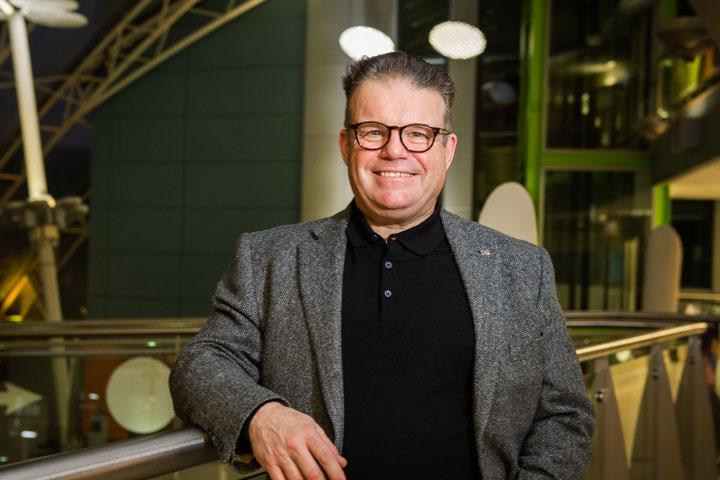How Science Benefits Refugees and Refugees Benefit Science
For the last 5 years Tony Ryan has been working closely, and then remotely, with refugees in the UNHCR Azraq & Za’atari camps, developing hydroponic horticulture to improve nutrition and well-being. The refugees’ legal status usually prevents them from taking up employment, owning property or moving freely, stripping them of agency. At home, they were farmers, engineers, teachers, doctors, so not only have they been forcibly displaced, but also forcibly unemployed. And they can’t do anything that even looks like it might lead to permanence, like getting a job or fixing their house. It is incredible to see the resilience of the Za’atari folk.
Our research on hydroponics is focused on 1st world technology, the production of high-value crops close to market with a low carbon and water footprint using polyurethane foam as a synthetic soil. This then moved on to understand the complex bio-interactions and systems engineering to build efficient processes.
So there was plenty of science in my talk.
We connected our work on synthetic soils with a waste disposal problem posed by UNHCR - the UN's refugee agency - they saw dirty unused mattresses, we saw an alternative growth substrate and more than that; ‘a problem’ could actually help. In doing so, we developed small-scale hydroponics at the household and community scale. There are benefits that come from the act of co-creation, not ‘smart ideas’ parachuted in, and the equality found in some academic humility and what happens between people when safety is taken away. We responded to the frequent cry of the Syrian refugees - that they miss the colour green - not only did we find a technical fix together, but a chance to improve wellbeing too. These benefits are now impacting our work in Sheffield, we now have an urban farm programme, built using the low-cost technology developed in Zaatari with farmers from Syria.
The Covid19 pandemic affects the whole world and back in March 2020, we were contacted by UNHCR for help with PPE and hand hygiene. In both the UK and Jordan we have made prototypes of masks, shields and gowns using digital printing and sewing capabilities and there have been co-created innovations in both design and joining technologies. We are now running a remote interdisciplinary co-production project, comprising a socio-technical part focused on designing PPE and hand hygiene solutions for impoverished refugee camps and the host community, and socio-behavioural part, understanding how the availability of PPE affects people's attitudes and behaviours around risk, and so enables them to address health threats.
The people we met embodied values that are often forgotten by those of us in more privileged parts of the world: an adaptable approach to solving problems, an aversion to waste, a sense of community. As hard as we must work to live in a world where no one is forced to flee their home, there is much we can learn from Syria’s refugees.

